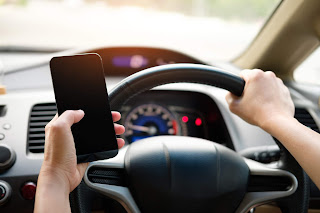Outdated legislation & lacking police powers to tackle unroadworthy vehicles
Summary The police do not have all the powers they need to tackle drivers of vehicles that do not comply with construction & use regulations. Furthermore, construction & use regulations are largely outdated and insufficient and should be revised. Legislators should: Give police the same powers to issue prohibitions that DVSA vehicle examiners have This means authorised constables should be allowed to issue Delayed prohibitions for less serious (D) breaches of construction & use regulations, such as failing to display a front registration plate. Revise the various construction and use regulations and the penalties to, in any case, remove the following anomalies: Sounding the horn on a restricted road at night is prohibited while using a horn for no good reason at daytime isn't specifically prohibited No mirrors fitted on your motorcycle? No problem! Members of the public can, in some cases, legally fit blue lights to their vehicles Failing to have seat bel...


